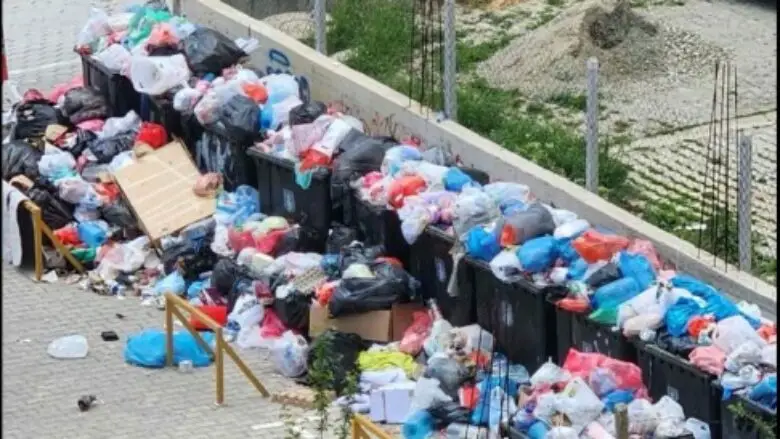The National Institute of Public Health of Kosovo (IKShPK) has issued a warning regarding the growing accumulation of urban waste in Pristina, emphasizing the urgent need for proper waste management to protect both the environment and public health.
According to a statement posted on IKShPK’s official Facebook page, uncontrolled disposal of waste directly pollutes the soil, water, and air. This creates favorable conditions for the spread of bacteria, parasites, and insects, increasing the risk of infectious diseases such as dysentery, hepatitis A, cholera, and respiratory infections.
From an environmental perspective, the waste contributes to the pollution of ecosystems and biodiversity. Uncontrolled burning of waste releases harmful smoke and gases like dioxins and furans, which can cause chronic respiratory illnesses, allergies, and in some cases, cancer.
The institute also highlighted the negative social impact, noting that poor waste management reduces the quality of life for citizens. Last week, Pristina experienced a particularly visible problem, as overflowing containers and scattered garbage around collection points created a serious public health risk.
Additional concerns were raised about stray dogs and cats spreading garbage, which increases the chance of contagious diseases and causes noise disturbances in neighborhoods. Open container lids combined with rainy weather have also led to the spread of unpleasant odors, further affecting air quality.
In response, IKShPK recommends regular waste removal in all neighborhoods, ensuring containers are closed and the surrounding areas kept clean. They also call for improved management of inert waste, such as construction debris, which is currently not collected by the responsible company “Pastrimi.” Clear signs prohibiting the dumping of construction materials at urban waste collection points should be installed.
“To protect public health, IKShPK urges that situations like this do not recur,” the statement concluded.







